Amazing Nomads: Susan Spann - No Barriers
Susan Spann is an Amazing Nomad, currently facing her fears and climbing 100 mountains in Japan after making a pledge to create a life of purpose and impact.
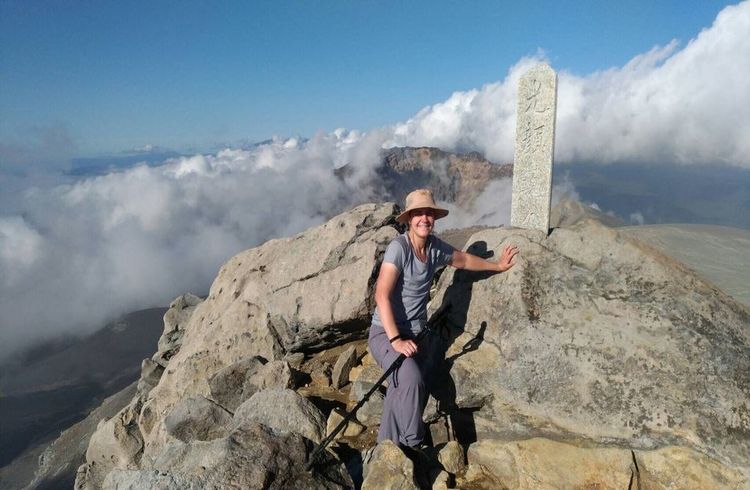 Photo © Susan Spann
Photo © Susan Spann
Listen Now
Amazing Nomad: Susan Spann
As well as delivering our fortnightly World Nomads destination podcast, we share bonus episodes shining the spotlight on amazing people doing amazing things by demonstrating discovery, connection, transformation, love and, like Susan Spann, fear.
What’s in the Episode
00:21 Where did Susan get her inspiration from?
01:05 "this will teach you to brag super blind guy."
02:46 The No Barrier's Pledge
03:18 Afraid of failure
04:34 Why 100 of the most famous peaks in Japan?
07:17 Cancer milestone
07:58 I had a dream
10:10 Susan's thoughts on Japan
11:28 "...at six years old, I got out of line and walked away, because I didn't know what the risk was, and I was afraid to take it. I was terrified that if I got in the bounce house, I was somehow going to die."
13:34 Susan's advice for travelers
Who is in the Episode
Susan Spann is the award-winning author of the Hiro Hattori mystery novels.
Inspired by Eric Weihenmayer, author of Touch the Top of the World: A Blind Man’s Journey to Climb Farther than the Eye Can See, Susan is living in Japan, attempting to climb 100 mountains in a single year and writing a non-fiction book, currently titled 100 Summits, about facing fear and pursuing dreams.
After reading Eric’s second book No Barriers, “a dive into the heart and mind at the core of the turbulent human experience”, Susan signed up to Eric’s No Barrier's pledge, “to harness adversity, break through personal barriers and create a life of purpose and impact”.
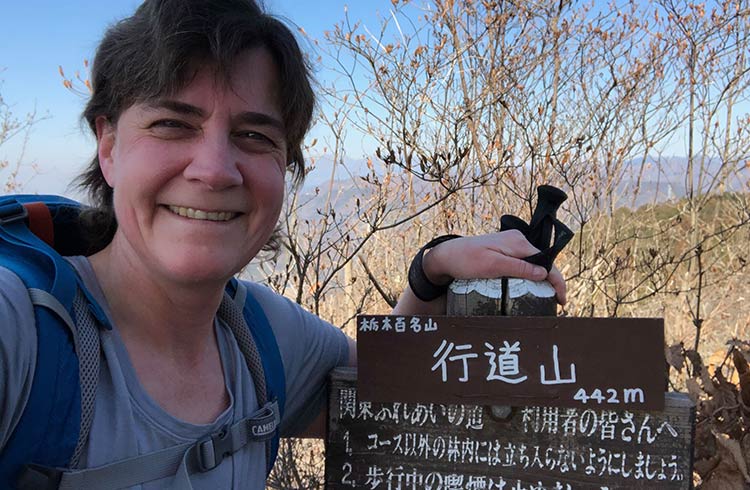
Please Complete Our Survey
Resources & Links
Scholarships Newsletter: Sign up for scholarships news and see what opportunities are live here.
Want to Republish This Episode
<iframe width="100%" height="200" src="https://player.whooshkaa.com/player/episode/id/343622?visual=true&sharing=true" frameborder="0" style="width: 100%; height: 200px"></iframe>
Next Episode: Rwanda.
About World Nomads & the Podcast
Explore your boundaries and discover your next adventure with The World Nomads Podcast. Hosted by Podcast Producer Kim Napier and World Nomads Phil Sylvester, each episode will take you around the world with insights into destinations from travelers and experts. They’ll share the latest in travel news, answer your travel questions and fill you in on what World Nomads is up to, including the latest scholarships and guides.
World Nomads is a fast-growing online travel company that provides inspiration, advice, safety tips and specialized travel insurance for independent, volunteer and student travelers traveling and studying most anywhere in the world. Our online global travel insurance covers travelers from more than 135 countries and allows you to buy and claim online, 24/7, even while already traveling.
The World Nomads Podcast is not your usual travel Podcast. It’s everything for the adventurous, independent traveler. Don’t miss out. Subscribe today.
You can get in touch with us by emailing podcast@worldnomads.com.
Speaker 1: The World Nomads Podcast Bonus Episode. Hear amazing nomads sharing their knowledge, stories, and experience of world travel.
Kim Napier: Thanks for tuning into this episode of the podcast.
Phil Sylvester: Look, we love speaking to amazing nomads, because they do so much to inspire us all to explore our boundaries. But even amazing nomads get their inspiration from somewhere.
Phil Sylvester: Today's guest was inspired by Erik Weihenmayer, a blind man who climbed Mt. Everest. Let's just hear a little from Erik's book, Touch the Top of the World: A Blind Man's Journey to Climb Further than the Eye Can See, as it was read by narrator Nick Sullivan.
Nick Sullivan: On a past training climb I had made the mistake of bragging to my teammates that I could sense when we were over a hidden crevasse, by the soft tremulous feel of the snow, and the slightly hollow thunk made by my boot steps. So they had decided to test my claim by pushing me forward and making me lead across the notoriously suspect snow field, below our 14,000-foot camp. "This'll teach you to brag, Super Blind Guy."
Kim Napier: Now, Erik has inspired many people, not just those with a disability, to pledge to live a No Barriers life. Susan Spann is the award-winning author of The Hiro Hattori mystery novels, and she took a No Barriers Pledge to climb all 100 of the Nihon Hyaku-meizan, the most famous peaks in Japan.
Kim Napier: I think I'll put a little bit of a telling in that Phil, but that's okay. She's done 80 so far at the time of recording. If she's successful ... no doubt she will be ... she'll be the first cancer survivor to do so, within a year of completing treatments.
Susan Spann: I have made the decision because I've lived my entire life basically motivated by fear. I had, as a lawyer
Susan Spann: After 20 years of that, I was feeling unfulfilled. And I decided after reading a book by Erik
Susan Spann: And so I made the decision to shutter my law practice and come to Japan and attempt to climb the Hyaku-meizan, or the 100 Famous Mountains of Japan, in a single year.
Susan Spann: At the start of that adventure, I was diagnosed with breast cancer, actually right before I started. During that time I had also signed a contract with my publisher to write a book about this experience, and it talks about my overcoming cancer and coming to Japan to climb the 100 Summit.
Susan Spann: At the beginning of my adventure, I was reading a book on the train; the book happened to be No Barriers, Erik's newer book. In the process of reading the book and starting these climbs. that I was effectively doing exactly what his No Barriers Pledge is asking people to do, which is to break through the barriers in their lives and live their best, most fulfilled life.
Kim Napier: Going back prior to reading Erik's first book, what were you frightened of? Why did you carry this fear around?
Susan Spann: You know, I'm not exactly sure. I really believe that part of the problem was inherited. My father was a very talented man. He should have been an architect. But
Susan Spann: And so all my life I was afraid of failure, and I was just afraid that I would try something and then I would end up broke. Disappointing others I think was more important, most important of all.
Kim Napier: Okay. You made this decision and then
Susan Spann: Indeed. In
Phil Sylvester: Really? Or were you just scared of disappointing them, now you'd signed a contract?
Susan Spann: I won't lie and say that wasn't in there. But the truth is that when I was diagnosed with cancer, I realized that I had lived my entire life in fear. I had let it control me. I had let it make the decisions. As terrifying as it was, I felt like, here I have cancer now, and I may never have the chance to do these things I wanted to do. It made it all that more important to get better and to get healed and to get on those mountains.
Kim Napier: So
Susan Spann: The truth is, it's sort of a two-part answer. When I was much younger, I became very fond of reading mountain books. I read all kinds of climbing books. That's how I found Erik's first book.
Susan Spann: But I had read this wonderful book by Kyūya Fukada, called Nihon Hyaku-meizan, or 100 Famous Mountains of Japan. And Fukada's book describes a set of 100 specific mountains that he believed, if you climbed them all, you would come to understand what it was to be a mountain in Japan. The essence of Japanese mountains.
Susan Spann: People have climbed these 100 mountains, which was my original goal, to climb those 100 mountains, and become the first western woman over 45 to do it in a single year.
Susan Spann: Now, the Japanese think this is ridiculous because they think a lesson is to be learned over a lifetime. Not in a year. And given the typhoons and the other logistical challenges ... and also what I've learned along the way, I actually agree with them. I am now climbing 100 mountains that have famous historical significance, rather than just these hundred. But that was the foundation of it.
Kim Napier: When you say "mountains," they're not anything like Everest, obviously.
Susan Spann: No, they range in height from ... well, the smallest official mountain in Japan is only 23 meters high. But it's not one I'm counting.
Kim Napier: 23 meters?
Phil Sylvester: Where is it? How is it classed as a mountain if it's only 23 meters?
Susan Spann: It's in Osaka. It's one of the few mountains in Japan that was quote-unquote man made because it was created when they dredged Osaka Harbor [inaudible 00:06:23].
Kim Napier: I might become the first woman to climb that mountain 100 times. 23 meters is very achievable.
Susan Spann: Well, there's a little place nearby that'll give you a certificate if you climb it.
Kim Napier: Aw, yeah, love a bit of a certificate.
Susan Spann: So, I have climbed Mount Fuji. Most of the others that I'm climbing are over a thousand meters. They're significant climbs, but they're certainly not Himalaya climbs.
Phil Sylvester: Is it like a hilly hike that you're doing, or is it proper mountain climbing?
Susan Spann: A little bit of both. Some of the mountains are more like hiking. There's no ice climbing, there are no ropes and rappelling. They're not the kind of faces that you see on Half Dome or Real Mountaineering. They're more what I'd call a combination of climbing and trekking.
Kim Napier: And how are you going with your cancer?
Susan Spann: My TT scan last April was clear. My tests in November were clear. It looks as though we may have destroyed that little beast.
Kim Napier: Wow.
Phil Sylvester: Yay. Well done. Listen, you don't actually sound like a very fearful person to me. Just in this conversation that we're having. Are you different? Are you different now? Were you a different person before?
Susan Spann: I think I faked not being afraid pretty well before. But I think I am far less afraid now. I've had to face a lot of different fears.
Susan Spann: One of the things that I discovered along the way, I had been having chronic nightmares my whole life. Shortly before one of my climbs up in Hokkaido ... I know this sounds really weird ... but I actually had a dream in which I was talking to myself, woke up after the dream, and realized that my nightmares were really the fact that I had never really loved myself my whole life. And in the dream, I gave myself permission. It was okay, and I had not had a nightmare in seven months.
Kim Napier: That's pretty powerful. Why didn't you like yourself? It sounds like you've come from a home where education is valued.
Susan Spann: I do. And I think what, based on this dream and what I've come to realize in the mountains and hiking, was I just never felt like I was good enough. I never felt like who I was, was good enough. I was always living for the next achievement. Maybe then I'll be good enough.
Susan Spann: And
Phil Sylvester: Well, on that note, another 20 mountains to go. Do you think you might find an-
Susan Spann: Indeed.
Phil Sylvester: ... an emptiness after you've achieved that? Or how you go, how you're planning to do that if you've been somebody who needs to achieve? If you don't have a target, are you going to be able to stay healthy?
Susan Spann: Well, the good news is I'm actually also a novelist. I have six mysteries in print; they're set here in Japan. So I do actually have a
Susan Spann: But I also do intend to finish climbing the actual Hyaku-meizan, and to keep climbing other mountains and seeing things here in Japan and exploring. But now instead of doing it because I will be better when I finished it, I'm enjoying where I am now. The challenges that I set for myself are just that. They're challenges to grow and to stretch. But not to become someone who's worth loving.
Phil Sylvester: How long have you been living in Japan?
Susan Spann: We moved over here on May 14th, which was almost a month to the day after I finished my cancer treatments of 2018.
Phil Sylvester: And how are you finding living there? They're a very sort of deep culture, a very spiritual culture as well. How are you finding that?
Susan Spann: Oh, I love it. When I was in my 20s ... or maybe in my 30s ... I saw a television show, one of Anthony Bourdain's No Reservations programs. He was talking with an expat who had moved to the ... and they're talking by this muddy river, and the gray clouds are overhead.
Susan Spann: Bourdain asks the guy, "How did you fall in love with Vietnam? How did you come to live to be here?" And the guy says he got off a plane in his college years, and fell in love with Vietnam, and never left.
Susan Spann: I remember watching that television show in my 30s and thinking, "That guy's weird." And I got off the plane and I smelled the air, and I looked around, and all of a sudden I understood exactly what that man had said to Anthony Bourdain. This country got in my heart and in my blood, and it just refused to let go.
Kim Napier: Just listening to your life, I'm thinking like Phil, I don't see any fear there. Going through a law degree, starting your practice, closing it down, becoming a novelist, heading off to another country to live, climbing mountains. That takes guts. That doesn't sound like someone that's hiding away like a frightened little mouse.
Susan Spann: Yeah, but you don't see in there that I've always still been the little six-year-old who was standing in line at the carnival to bounce in the bounce house, and read the sign on the side. This is a true story. Sign on the bounce house said, "Enter at your own risk." And at six years old, I got out of line and walked away, because I didn't know what the risk was, and I was afraid to take it. I was terrified that if I got in the bounce house, I was somehow going to die.
Kim Napier: [inaudible 00:11:49]
Susan Spann: I had terrible social anxiety. I had to learn to manage it, because of course as a lawyer and a law school professor, I would stand up in class and I had to learn how to do that.
Susan Spann: But the whole decision to become a lawyer was motivated by fear. I wanted to be a writer my whole life. And my father said, "How are you going to earn a living?" Of course, the fear kicked in. That was the bounce house, right? All over again.
Susan Spann: I can't become a writer because there are risks. I might end up broke. Or dead. And so I became a lawyer. And I eased my toe into writing. I did it part-time, while I was practicing law.
Kim Napier: I'm wondering, and this is a bit of a whoo-whoo moment
Susan Spann: I think that's actually quite possible. Never once after my diagnosis, or during chemo or any of it, did I say, "Oh, why me?" Because every time I started to do that, my response to myself was, "In your deep heart of hearts, you've known, since your grandmother died of breast cancer when you were 12 years old, you've known you were going to get it."
Susan Spann: The timing did seem too coincidental to be coincidental. I make the decision to break free, I make the decision to face my fears. And literally within a month, I'm diagnosed with cancer? That's not a coincidence. However, it's an opportunity.
Kim Napier: What would your advice be, then, to travelers that sit back overnight and read books on climbing mountains, but are too frightened to do it. What would your advice be?
Susan Spann: Do it. It doesn't matter how old you are, or what other things you're facing. It's like Erik says in his No Barriers Pledge, it's about making the decision not to let what holds you back, hold you back any longer.
Susan Spann: My mother is 75 years old. She climbed Mt. Fuji with me. She didn't get all the way to the top. But she got most of the way. She got a surprising way, for somebody who'd never climbed a mountain in her life.
Susan Spann: I wasn't able to climb the whole actual Hyaku-
Kim Napier: That is such great advice. Magic happens when you take that first step. Now, we'd love to hear
Phil Sylvester: And if you know an Amazing Nomad who demonstrates discovery, connection, transformation, love, or, like Susan, fear, email us at podcast@worldnomads.com. And we'll line 'em up.
Kim Napier: Yep. You can get the World Nomads Podcast on iTunes, or you can download the Google Podcast app. Please subscribe, write, share, and tell your friends about us.
Kim Napier: Next week, we're going to take you to Rwanda.
Phil Sylvester: Bye.
Kim Napier: See ya.
Speaker 1: Amazing Nomads. Be inspired.
Related articles
Simple and flexible travel insurance
You can buy at home or while traveling, and claim online from anywhere in the world. With 150+ adventure activities covered and 24/7 emergency assistance.
Get a quote

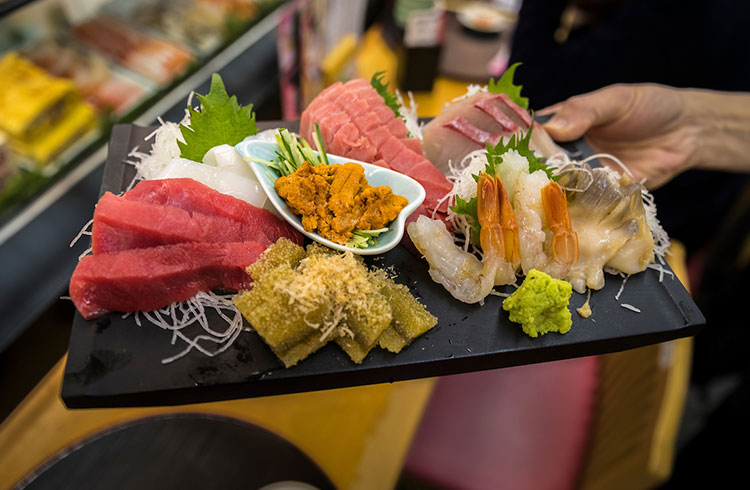

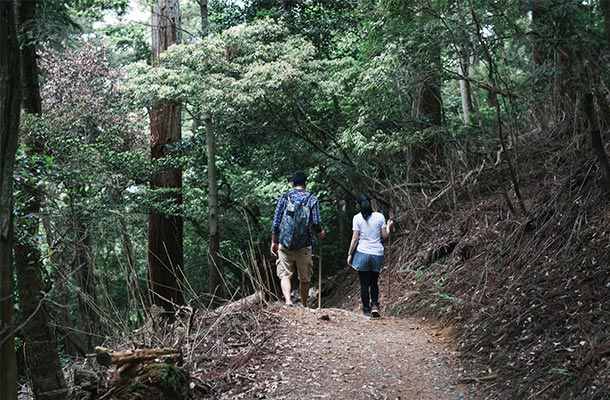
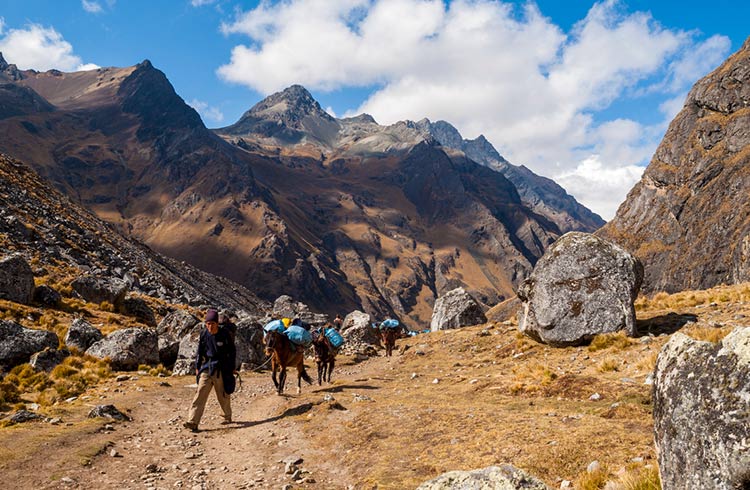
No Comments